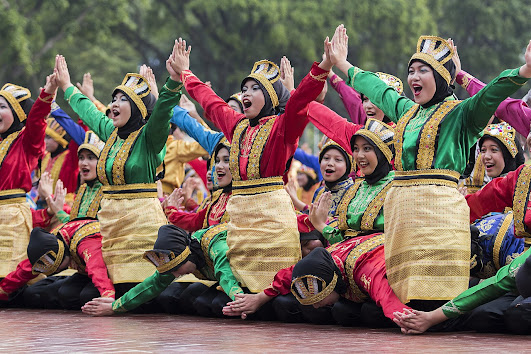Otsus Papua in a Peace Perspective
The regional government has the authority to regulate and manage government affairs by itself according to the principle of regional autonomy, as mandated in the 1945 Constitution of the Republic of Indonesia. This is done to accelerate the realization of the welfare of local communities through improved services, empowerment and community roles, and increased regional competitiveness. Of course, by paying attention to every principle of democracy, equity, justice, and the specificity of a region within the Unitary State of the Republic of Indonesia (NKRI), which is described in article 18B paragraph 1 of the 1945 Constitution which reads to recognize and respect units of regional government that are special.
The provisions in the constitutional mandate that the Republic of Indonesia is organized with inter-regional arrangements that are not uniform between one another. In the relationship between central and regional or provincial and district/city levels, it is possible to have a special pattern of relationships, such as the province of Papua. This arrangement was implemented to ensure that all Indonesians could be integrated with diversity within the framework of a unitary state. The government gave special autonomy to Papua, as well as West Papua, as a state effort to respect indigenous peoples and their traditional rights. In this case, the special autonomy policy is a meeting point and a middle way to strengthen Papuan integration as well as a bridge to pursue peace and build prosperity in the land of Papua. Through special autonomy, indigenous Papuans are a requirement for regional head candidates, based on Article 12 of the Special Autonomy Law.
For the local government, Otsus Papua has also made changes to the lives of the Papuan people, although there are still some groups of Papuan people who think otherwise. The targets of Special Autonomy are indigenous Papuans, people who come from the Melanesian race group consisting of indigenous tribes in the Papua Province, and/or people who are accepted and recognized as indigenous Papuans by the indigenous Papuan people. The next target of Otsus is Papuan residents who are registered under the applicable provisions and reside in Papua and West Papua Provinces.
Although the Otsus focuses more on the distribution of economic and infrastructure funds in Papua, there are still many other aspects that have an important influence on the Papuan people
A form of protection, empowerment, and partisanship of the Special Autonomy Law for the rights of indigenous Papuans and Papuans. For indigenous Papuans to become governors and deputy governors; The Papua provincial government is obliged to recognize, respect, protect, empower and develop the customary rights of customary law communities and the individual rights of customary law communities. The Papua Provincial Government is obliged to protect the intellectual property rights of indigenous Papuans to recognize customary courts as peace courts within the customary law community. Furthermore, the right to obtain quality education up to secondary school level at the lowest possible cost protects, fosters, and develops indigenous Papuan culture.
Various approaches and strategies have been
taken by the state so that Papua will become a rapidly developing region in
terms of economy, culture, and resources. Apart from autonomy, which is the
main basis for building and improving this aspect of special autonomy, this
special autonomy is part of a peaceful resolution, which of this special
autonomy is very helpful in developing education, health infrastructure, and
affirmation of the Papuan people. If there is no major role for the Papuan
community or government, this can lead to conflict.
Also, several other steps were taken by the government to resolve problems in Papua, namely, through dialogue which is not new. Dialogue is widely applied in several countries to solve problems in different contexts, such as Yemen, Tunisia, Sudan, and especially Indonesia. Dialogue is a conflict resolution step recommended in article 33 of the 1945 UN Charter, which contains "the parties to a dispute in a dispute, which in turn can endanger international peace and security, so what needs to be done is to find solutions through negotiations, investigations, mediation, consensus, arbitration, conciliation, and settlement"
Dialogue has become a very effective thing for Indonesia to do to resolve the conflict in Papua. Various approaches have been taken by previous presidents, starting from the era of President Habibie, until now President Joko Widodo. A national dialogue is a medium that brings stakeholders together inclusively to understand and discuss various issues that are significantly related to the peaceful settlement of Papua.
This distrust is one of the reasons why various government policies in Papua are not running effectively and have no impact on improving Papua. This national dialogue functioned greatly as a special bridge to overcome distrust between Jakarta and Papua. Although the Special Autonomy Law focuses more on the distribution of economic and infrastructure funds in Papua, there are still many other aspects that have an important influence on the Papuan people. Until now, what needs to be done is to expand the Papua special autonomy policy by adding more respect for human rights, indigenous peoples, and the history of Papua. Apart from that, the use of cultural symbols, the role of the media, society, TNI, government, NGOs, youth, businessmen, etc., need to work together in this regard. This is because Papua has great potential to become an advanced region in all aspects, especially through the Otsus policy which is still being continued.
Moses Rombiak


Komentar
Posting Komentar